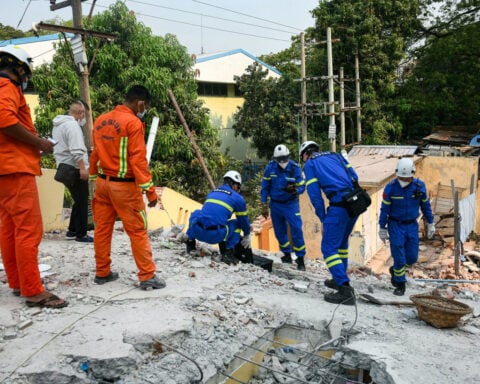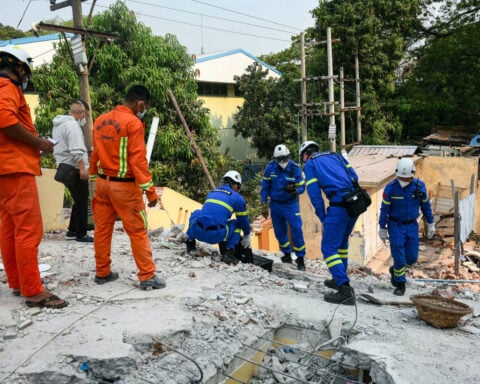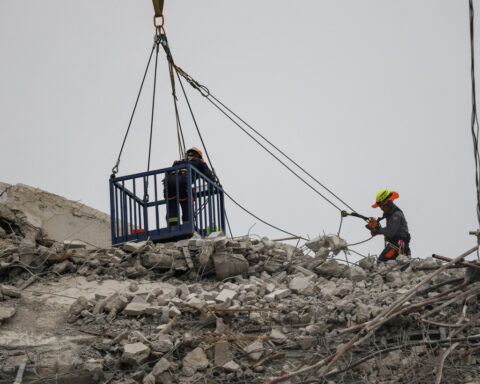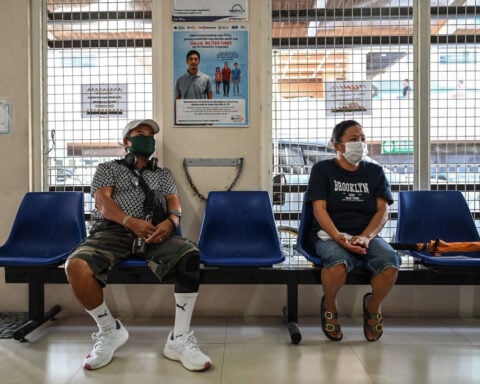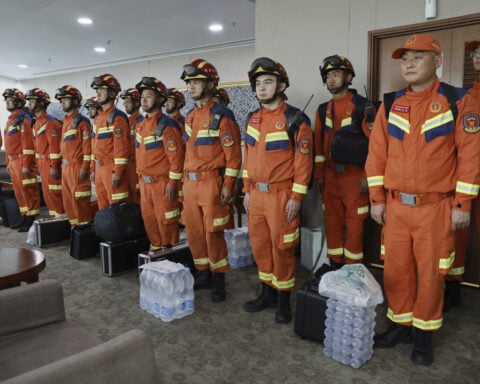BEIJING (AP) — China on Wednesday kicked off its annual parliamentary session, the National People’s Congress, which outlines the government’s priorities for the year. Stabilizing the sluggish economy and pushing for broader applications of artificial intelligence were among the focus areas in a work report read by Premier Li Qiang.
Beijing also vowed to address a property market slump and ballooning government debt that are dragging on economic growth as well as find ways to boost employment and offer better public education, health care and social security support.
Here are the main takeaways from the annual government work report of the world’s second-largest economy:
A target of ‘around 5%’ economic growth despite trade frictions
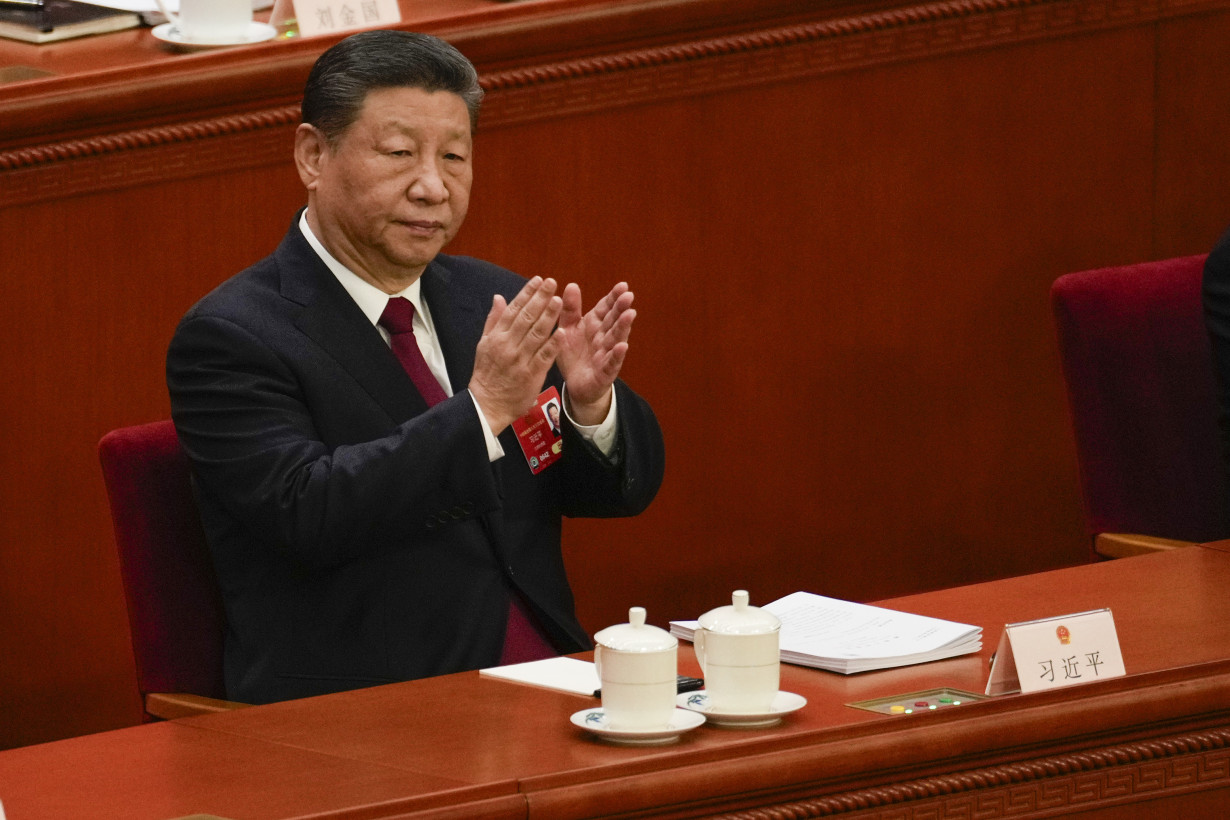
China set an economic growth target of “around 5%” for 2025, in line with the past two years. Last year, the economy grew by 5%, according to official data, aided by strong exports and stimulus measures. However, the International Monetary Fund estimates that China’s economy will slow this year, to about 4.6% growth.
One of the main threats is a looming trade war with the United States. Beijing and Washington have been slapping tit-for-tat tariffs on each other’s goods over the past few weeks. The duties threaten to shave up to 1.1 percentage points off of China’s economic growth this year, according to Maybank Investment Banking Group.
Li spoke of “an increasingly complex and severe external environment,” with rising “tariff barriers” and geopolitical tensions.
Raising consumption is the government’s main priority
The main priority outlined in Li’s report was addressing “inadequate domestic demand, particularly insufficient consumption,” as well as making “domestic demand the main engine and anchor of economic growth.”
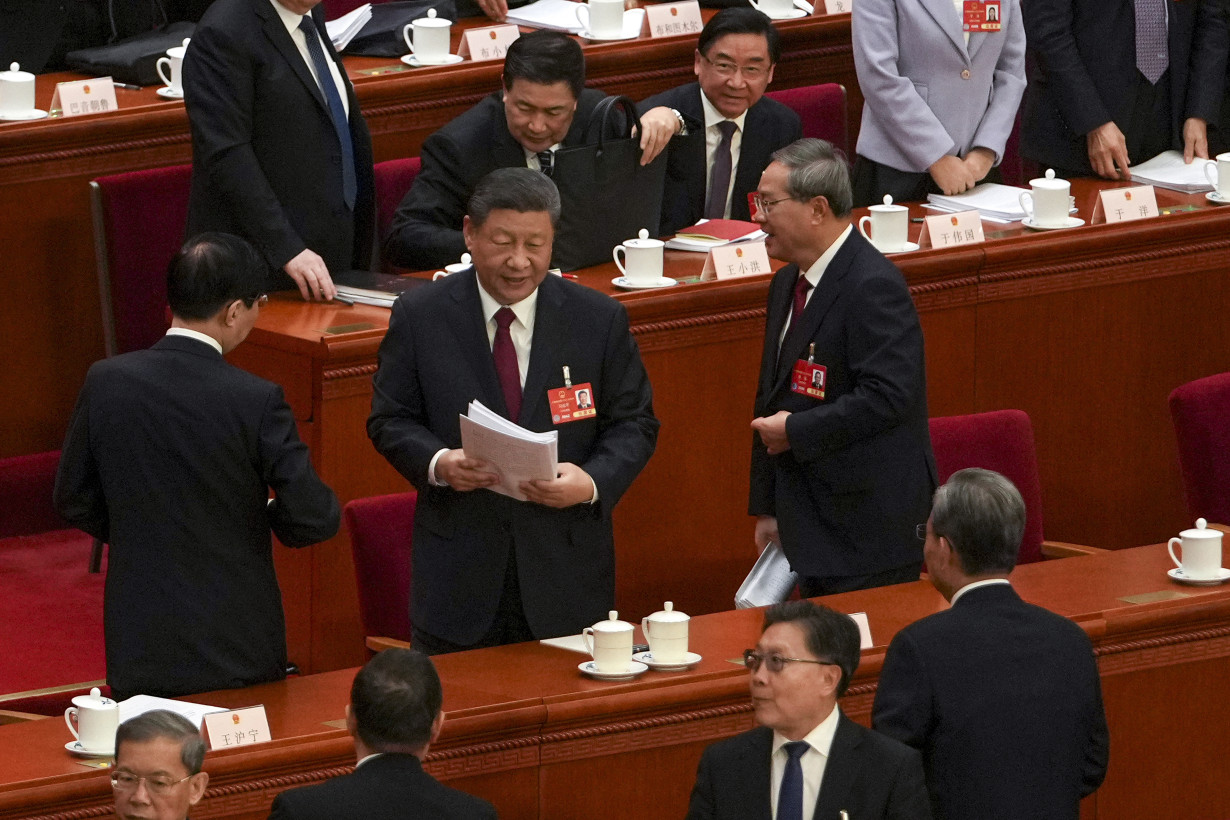
China is struggling to get its people to spend more money amid a protracted property market slump. People’s reluctance to spend has led to a deflationary spell, which threatens to push the country into even deeper economic trouble.
Among the measures meant to help boost consumption, the government has announced raising the fiscal deficit ratio to 4%, from 3% last year, and issuing ultra-long special treasury bonds totaling 300 billion yuan ($41.3 billion) to finance consumer goods trade-in programs, some of which are already underway.
AI and technological self-reliance take center stage
Achieving technological self-reliance is one of President Xi Jinping’s key aims. Over the past few years, the U.S. has moved to limit China’s access to advanced technologies including semiconductors over security concerns, so Beijing would like to be able to develop critical advanced technologies at home.
Li promised the government will support research and development in “core technology in key fields.” In particular, the country is interested in expanding the development and use of AI in smart manufacturing, new-energy vehicles and robotics.
Beijing promises to address the property slump and local government debt
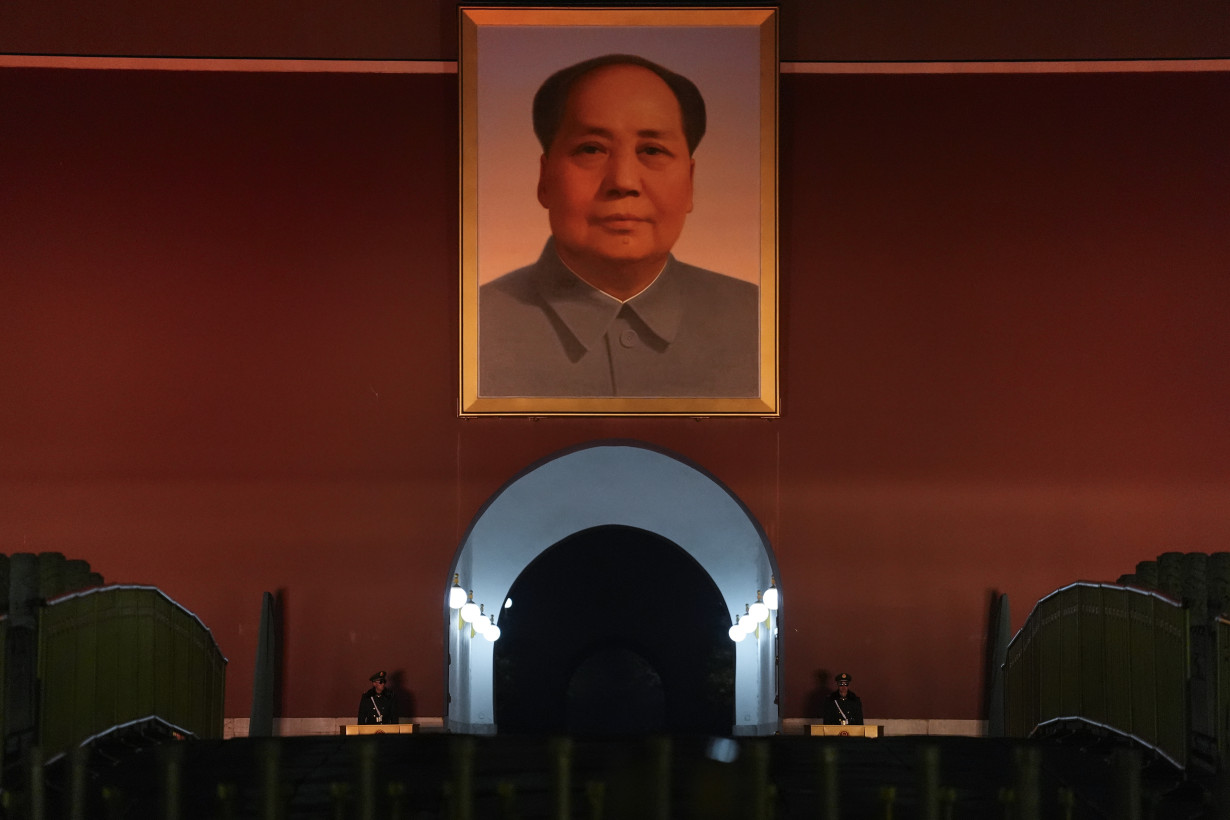
China's property slump, which deepened after several major developers defaulted on their debts in recent years, failing to deliver homes to their buyers, is another one of the government's concerns.
Li promised Beijing will “make continued efforts to stem the downturn and restore stability in the real estate market,” including by lifting property transaction restrictions and leveraging real estate financing to ensure the timely delivery of housing projects.
The premier also said the central government will address mounting local government debt and especially target the “hidden debts of local governments.”
Defense spending increases and a consistent stance on Taiwan
China also announced a 7.2% rise in its defense budget this year — the same percentage as last year. A National People’s Congress spokesperson on Tuesday had described the country’s defense spending as measured and hovering under 1.5% of GDP.
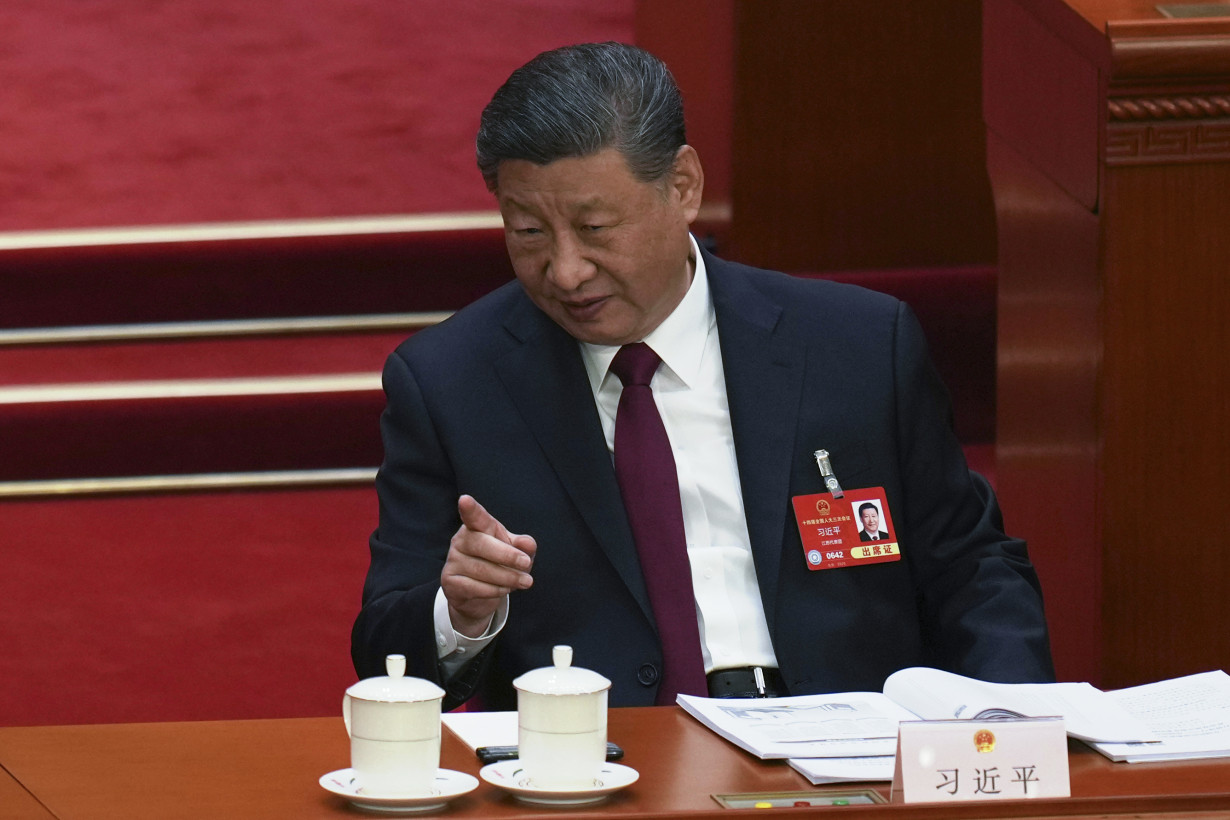
Beijing commands the largest armed forces in the world and the second-highest military budget after that of the U.S., as it seeks to assert its territorial claims and challenge U.S. alliances in Asia.
On the issue of Taiwan, the self-ruled democracy China claims as its own, the government work report reiterated Beijing’s ambitions to “resolve the Taiwan question,” meaning to annex the island. The report added that Beijing opposes separatist activities aimed at Taiwan’s independence and external interference in relations across the Taiwan Strait.

 Trump has begun another trade war. Here's a timeline of how we got here
Trump has begun another trade war. Here's a timeline of how we got here
 Canada's leader laments lost friendship with US in town that sheltered stranded Americans after 9/11
Canada's leader laments lost friendship with US in town that sheltered stranded Americans after 9/11
 Chinese EV giant BYD's fourth-quarter profit leaps 73%
Chinese EV giant BYD's fourth-quarter profit leaps 73%
 You're an American in another land? Prepare to talk about the why and how of Trump 2.0
You're an American in another land? Prepare to talk about the why and how of Trump 2.0
 Chalk talk: Star power, top teams and No. 5 seeds headline the women's March Madness Sweet 16
Chalk talk: Star power, top teams and No. 5 seeds headline the women's March Madness Sweet 16
 Purdue returns to Sweet 16 with 76-62 win over McNeese in March Madness
Purdue returns to Sweet 16 with 76-62 win over McNeese in March Madness

